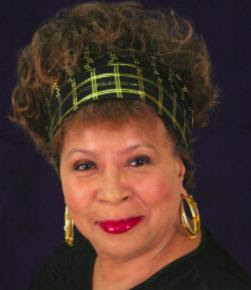Bebe Daniels (January 14, 1901 – March 16, 1971) was an American actress, singer, dancer, writer and producer.
She began her career in Hollywood during the silent movie era as a child actress, became a star in musicals like 42nd Street, and later gained further fame on radio and television in Britain. In a long career, Bebe Daniels made over 230 films.

Daniels was born Phyllis Virginia Daniels (Bebe was a childhood nickname) in Dallas, Texas. Her father was a theater manager and her mother a stage actress. The family moved to Los Angeles, California in her childhood and she began her acting career at the age of four in the first version of The Squaw Man. That same year she also went on tour in a stage production of Shakespeare's Richard III. The following year she participated in productions by Morosooa and David Belasco. She was in silent films from the age of nine and had made many films by the time that she signed a contract with Paramount Pictures, all this while attending a convent school.
 She became a tremendously popular leading lady, starring opposite big names such as Rudolph Valentino and making dozens of silent films. The advent of talking pictures served only to boost her career and she was successful in Rio Rita (1929), in which she also sang.
She became a tremendously popular leading lady, starring opposite big names such as Rudolph Valentino and making dozens of silent films. The advent of talking pictures served only to boost her career and she was successful in Rio Rita (1929), in which she also sang.Altogether, Daniels appeared in more than 200 films. Among these is Dixiana (1930), in which she plays opposite Metropolitan Opera House star Everett Marshall and which also features comics Bert Wheeler and Robert Woolsey although most interest lies in Bill ‘Bojangles’ Robinson’s dancing. She had a supporting role in 42nd Street (1933, also starring Warner Baxter, Ruby Keeler, George Brent and Dick Powell), while in Music Is Magic (1935, starring
 Alice Faye and Ray Walker), Daniels had one of her best roles as a fading movie star, even though she was only in her mid-thirties. As it happens, her real life film career was waning by this time and in 1936 she went to London with actor Ben Lyon, her husband since 1930.
Alice Faye and Ray Walker), Daniels had one of her best roles as a fading movie star, even though she was only in her mid-thirties. As it happens, her real life film career was waning by this time and in 1936 she went to London with actor Ben Lyon, her husband since 1930.Daniels and Lyon became popular in the UK and when they opted to stay in bomb-ravaged London during World War II, their stock with the general public knew no bounds. From 1941 they had an immensely popular BBC radio show, Hi Gang! which also featured Vic Oliver, and a 1941 film, Hi Gang! was based on their radio series.

Following the war, Daniels was awarded the Medal of Freedom by Harry S. Truman for war service. In 1945 she returned to Hollywood for a short time to work as a film producer for Hal Roach and Eagle Lion. She returned to the UK in 1948 and lived there for the remainder of her life. Daniels, her husband, her son
 Richard and her daughter Barbara all starred in the radio sitcom Life With The Lyons (1951 to 1961). This show also spawned a 1955 television series and two indifferent films, Life With The Lyons (1954) and The Lyons In Paris (1955). Daniels not only performed on the radio and television shows, she was also deeply involved in the scripts. Poor health in the 60s curtailed Daniels’ activities during the final years of her life.
Richard and her daughter Barbara all starred in the radio sitcom Life With The Lyons (1951 to 1961). This show also spawned a 1955 television series and two indifferent films, Life With The Lyons (1954) and The Lyons In Paris (1955). Daniels not only performed on the radio and television shows, she was also deeply involved in the scripts. Poor health in the 60s curtailed Daniels’ activities during the final years of her life. On March 16, 1971, Daniels died of a cerebral haemorrhage in London at the age of 70. Her remains were cremated at London's Golders Green Crematorium and the ashes brought home where she was interred in the Chapel columbarium at the Hollywood Forever Cemetery in Hollywood, California. Her husband Ben died eight years later of a heart attack. (Info edited from Wikipedia & Allmusic)


































































































































